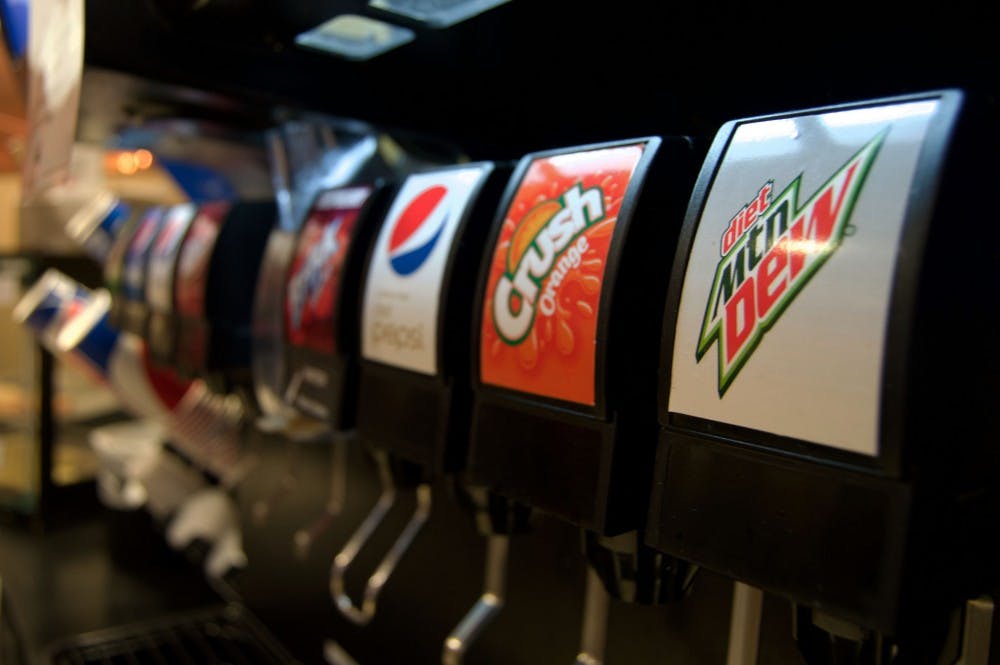With finals coming up, many college students find themselves fighting off sleep deprivation with caffeine, but what this popular stimulant could have a lasting effect on the body.
While grabbing a coffee or soda may seem like a quick fix to combat drowsiness, Christy Tunnel, instructor of nutrition and dietetics said that ingesting caffeine could have negative effects on your body.
“Too much caffeine can result in any of the following: restlessness, nervousness, excitement, insomnia, flushed face, diuresis and gastrointestinal disturbance,” Tunnel said.
On top of these, another issue has arisen — addiction.
Caffeine is a stimulant to the central nervous system, and regular use of caffeine does cause mild physical dependence, according to WebMD. Caffeine addiction is defined as a compulsion to take in caffeine.
Allison Hunt, a sophomore history and anthropology major describes herself as a caffeine addict.
“I drink some form of caffeinated beverage almost every day, and I tend to get headaches if I don't have caffeine for more than a week," Hunt said.
While there are several reasons that students reach for a caffeinated beverage, Rachel Erdman, a junior dietetics major says that the biggest reason students drink these beverages is to help them stay awake.
“College means late nights studying so we need something to help us function throughout the day after a long study session,” Erdman said. “Caffeine seems like the easiest way to do that for most people.”
Another reason that students receive their daily caffeine fix is accessibility. With Starbucks, the Bookmark Café and other sites on campus, students are able to get their daily dose with just a swipe of their ID card.
“Tour guides even make sure to point out the best coffee spots on campus to help win over prospective students,” Hunt said.
Other side effects of consuming too much caffeine can include restless sleep and what Erdman considers to be the most alarming, the consumption of empty calories.
“Unless you are drinking diet, sugar free versions of these beverages, chances are you are getting a lot of extra calories that don’t come with many nutrients,” Erdman said. “Some drinks can have close to 500 calories which is a fourth of your daily recommended amount of calories”
So how do students rid themselves of this addicting stimulant when a staple of college culture is romanticized coffee dates and late night stints?
Tunnel said that to reduce caffeine consumption, students must first become familiar with what foods and beverages contain caffeine.
Typically the biggest caffeine offenders are coffees, teas, sodas and energy drinks, she said.
“Most recently though, caffeine has been added to any number of products including ice cream, yogurt, and candy,” Tunnel said.
Tunnel suggests that keeping a food log or journal would be beneficial to help assess how much caffeine you are currently consuming. From there, she said you can try and reduce your consumption rate.
Erdman also said that exercising and eating a healthy diet will also help cut back on caffeine consumption.
“Eating a balanced diet will increase your mood and make you feel better all around,” she said. “Exercising increases your endorphin levels, which will help you focus!”
While caffeine does have a lot of negative drawbacks, it’s not all bad.
Tunnel says that some studies show that caffeine can improve memory, decrease fatigue and improve mental functioning.
In addition, she said that drinking coffee may help prevent type two diabetes, Parkinson’s disease and liver disease "as long as you keep your intake to three or four cups a day."
Erdman said “moderation is key” when consuming caffeine.
“I want to make sure people know that caffeine is not inherently bad for you,” Erdman said. “It is understandable to drink a caffeinated drink if you are tired but try to limit it to the best of your ability.”




